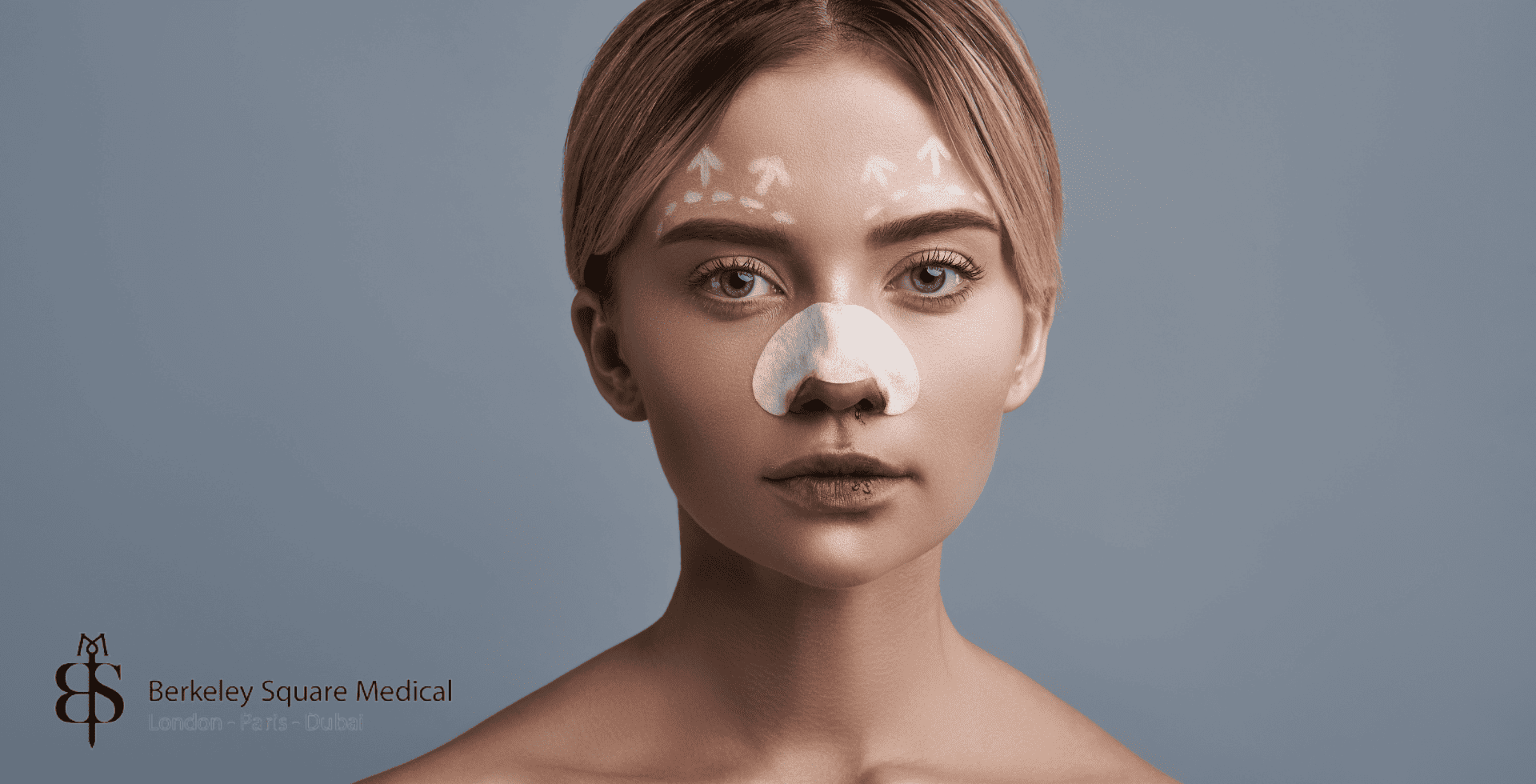
The prevention of infection is a critical step in any surgery, and rhinoplasty is no exception. Infection can cause significant inflammation and scarring, which can lead to deformity of the nose. (1) Ensuring that all preventive measures are in place is essential for the success of the procedure and the health of the patient.
If an infection does occur, it must be recognised and treated promptly and effectively to prevent further damage. Untreated infections can result in complications such as prolonged healing, additional surgeries, and in severe cases, permanent deformity.
Infections after rhinoplasty are uncommon but can happen, especially within the first 7–10 days.
Early signs include redness, fever, and unusual discharge from the nose or incision sites.
Treatment is effective when started early, typically with antibiotics and proper wound care.
Call your surgeon right away if symptoms like swelling, foul smells, or increased pain appear.
Prevent infection by following aftercare instructions and keeping your nose clean and protected.
It is normal to experience some redness, swelling, and bruising after rhinoplasty surgery. These are typical responses of the body to surgical intervention and usually subside within a few days to weeks.
However, certain symptoms can indicate an infection rather than normal healing. Key signs to watch for include:
Early detection and treatment of infection are crucial. If you experience any of these symptoms, contact your surgeon immediately. With prompt treatment, most infections can be successfully managed without causing any permanent damage.
Most rhinoplasty or septoplasty infections develop within the first 7 to 10 days after surgery. Here’s a general guide to what’s normal vs. what’s not:
Days 1–3: Mild swelling, bruising, and tenderness are normal. Clear or slightly bloody discharge is expected.
Days 4–7: Swelling begins to go down. Bruising fades. Mild discomfort is still normal.
Day 5 onward: Watch for signs of infection like fever, worsening pain, yellow or green discharge, increasing redness, or foul smells. These are not part of normal healing.
Week 2+: By this stage, you should feel better each day. Any new or worsening symptoms should be checked.
Intraoperative Factors
Infection after rhinoplasty can occur due to several intraoperative factors:
Postoperative Factors Other causes of infection are related to the postoperative period:
Preventing infection involves both careful surgical techniques and diligent postoperative care.
Preoperative Precautions
Postoperative Care Instructions
Cleaning the Surgical Area
Additional Recovery Tips
Sterile Surgical Environment
At Berkeley Square Medical, we prioritise creating a sterile environment for all surgical procedures. Our surgical team takes extensive precautions to maintain sterility, significantly reducing the risk of infection.
Experienced Surgical Team
Our team comprises highly skilled and experienced consultants specialising in rhinoplasty. Their expertise and meticulous approach ensure the highest standards of care and safety for every patient.
Commitment to Patient Safety
We are committed to ensuring that your rhinoplasty is performed in the safest possible environment. From preoperative preparations to postoperative care, our protocols are designed to minimise infection risks and promote optimal healing.
You should contact your surgeon right away if you notice any of the following:
Fever over 38°C (100.4°F)
Yellow, green, or thick discharge from the nose or incision site
Spreading redness, warmth, or swelling around the nose
Bad smell coming from your nose or wound
Sudden or increasing pain after initial recovery
Persistent nosebleeds
Feeling weak, dizzy, or generally unwell
Prompt treatment can prevent more serious complications, so don’t wait if something feels wrong.
Most post-rhinoplasty or septoplasty infections can be treated successfully if caught early. Common treatments include:
Topical antibiotic ointments (like mupirocin) for minor skin infections around incision sites
Oral antibiotics to target deeper or internal infections—these must be taken exactly as prescribed
Saline rinses may be recommended after the first week to gently clean the nasal passages
IV antibiotics may be needed in more serious cases
Surgical drainage or implant removal is rare, but may be required if an infection doesn’t respond to medication
Your surgeon will decide the best treatment based on the severity and location of the infection. Always follow their instructions carefully.
Signs of infection include fever, increasing redness or swelling, yellow or green discharge, foul smells from the nose, or worsening pain after initial healing.
Infection typically appears between 3 to 10 days after surgery. It’s rare immediately after the procedure, but common symptoms often show up once initial swelling begins to decrease.
Septoplasty infection symptoms are similar to rhinoplasty: look out for fever, facial swelling, pus-like nasal discharge, or a bad smell. Discomfort that worsens instead of improves may also be a warning sign.
Common causes include bacteria entering through surgical wounds, poor hygiene, not following aftercare instructions, or touching the nose too much during healing.
Treatment usually involves oral antibiotics, topical creams, or nasal rinses. In more serious cases, IV antibiotics or minor surgery may be needed. Early care leads to the best outcomes.
Yes, if left untreated, a serious infection can damage the tissues or affect healing, which may impact the final result. That’s why early detection and treatment are important.
Follow your surgeon’s aftercare plan, keep your hands and the surgical area clean, avoid smoking, don’t touch your nose unnecessarily, and complete all prescribed medications.
Rhinoplasty is generally considered safe when performed by a qualified, experienced surgeon. Like any surgery, there are risks—such as infection, bleeding, or poor healing—but serious complications are uncommon when proper care is taken.